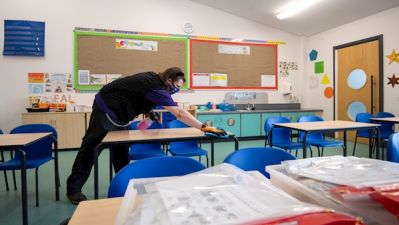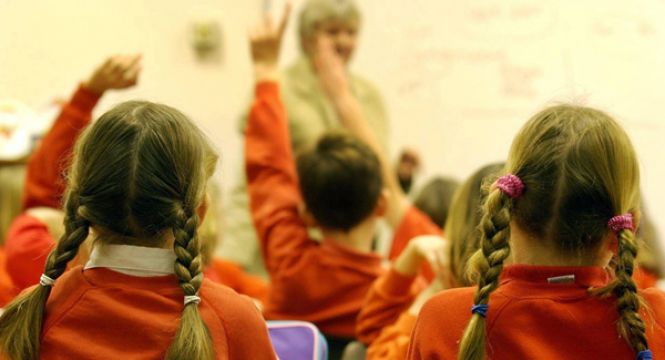The Association of Secondary Teachers in Ireland (ASTI) has warned that schools may be forced to close over the winter months due to ventilation and heating issues.
Kieran Christie, ASTI general secretary, said teachers and students have been wearing their coats to stay warm since the colder weather began.
He told the Oireachtas education committee that hygiene and ventilation facilities needed to be upgraded and that the union “remained concerned” over the differential capacity of schools to implement key aspects of the Covid-19 response plan.
“As the colder weather has set in, keeping many classrooms warm, ensuring they will be appropriately ventilated, has been a big problem in schools,” he said.
“Teachers and students are there in their coats in many instances.
“If a period of cold weather comes in the coming weeks or months many schools are likely to have to close for the duration.”
Mr Christie also said there was a lack of communication protocols in place in schools where an outbreak of Covid-19 does occur, which needs to be addressed, and that prioritising schools for rapid testing and tracing was also needed.
'Not fit-for-purpose'
The Teachers’ Union of Ireland (TUI) echoed the ASTI's concerns regarding the battle between heating and ventilation.
The TUI has called for a full audit of each school to establish and quantify the resources needed to keep them open.

The union's general secretary Michael Gillespie added many second-level school buildings are “not fit-for purpose”.
“Ventilation and heating problems will occur during periods of colder weather and may force the closure of some schools,” he said.
“TUI is calling for the Department of Education to take the advice of the HPSC (Health Protection Surveillance Centre) and install air quality meters in every classroom – this will ensure that student and teachers are not forced to teach and learn in freezing cold classrooms.
“In the medium term, and to future-proof our education system, we must re-conceptualise school design. The current crisis has demonstrated the importance of infrastructure that is fit for purpose,” he added.







